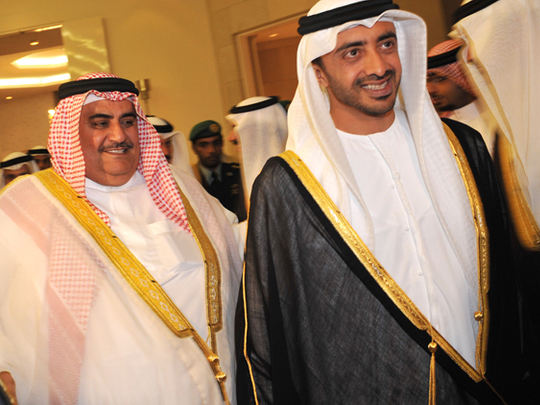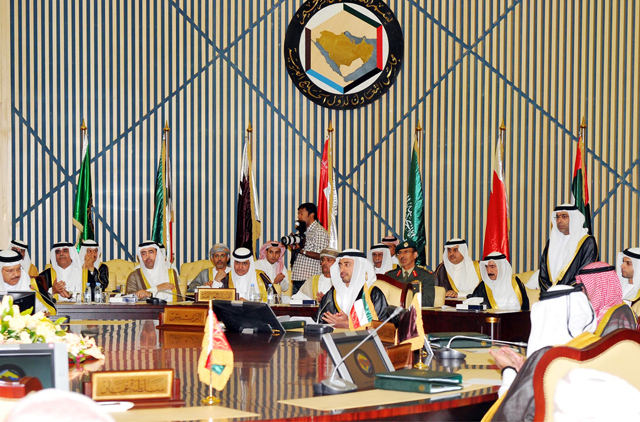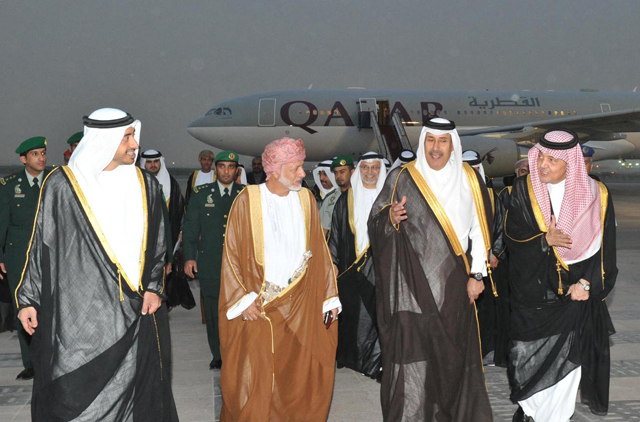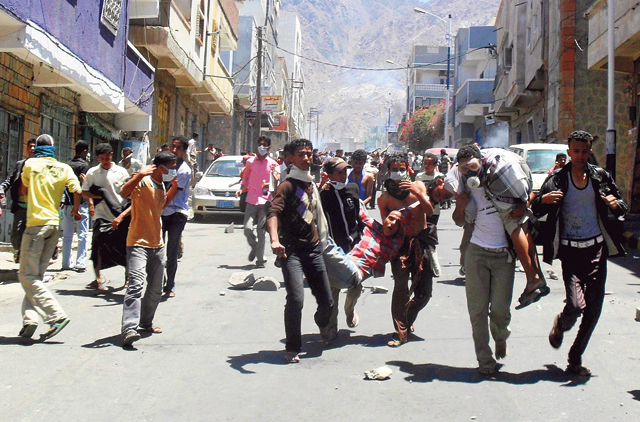
Manama: The Gulf Cooperation Council on Sunday expressed deep concern over what they called Iranian interference in their internal affairs.
In a statement at the end of an extraordinary meeting of the GCC Ministerial Council in Riyadh, chaired by Shaikh Abdullah Bin Zayed Al Nahyan, UAE Foreign Minister, the GCC states rejected Iran’s “continuing interference” in their internal affairs.
Iran had criticised Saudi Arabia for sending troops to Bahrain which faces protests against the government.
Tehran’s interference in the region loomed large ahead of the meeting.
“I advise the brothers in Iran to read the charter of the Gulf Cooperation Council very carefully before they interfere in the domestic affairs of any of its member states,” Shaikh Abdullah told the Kuwaiti daily Al Qabas.
“The GCC is an integrated entity and its security is a whole. The GCC was united as it confronted the Iraqi invasion of Kuwait, and so it shall remain in the face of any threat to its people. The GCC stance towards what happened in Bahrain is very clear and should serve as a lesson. Our council is strong and the best example is how we set up the fund to support Bahrain and Oman,” he said.
Grave concerns
Riyadh, Manama and Kuwait City, three of the council’s six capitals, have voiced grave concerns about Teh-ran’s statements and attitude towards GCC issues.
Bahrain last month recalled its ambassador to Iran for consultations after Tehran condemned the Bahraini government for the way it dealt with protesters.
The GCC states also called on the government and opposition in Yemen to hold talks to end the protests that have wracked the country for more than two months.
“The GCC calls on all parties in Yemen to return to national dialogue,” Abdul Latif Al Zayani, the new GCC secretary general, said at the meeting.
He said the political crisis in Yemen has significant ramifications throughout the region and expressed hope that the meeting would help to boost the GCC march to realise the aspirations of the people.
Yemen has been caught in a vicious cycle of protests and violence as President Ali Abdullah Saleh faces demands to step down.
With additional inputs from Reuters, AFP &WAM













